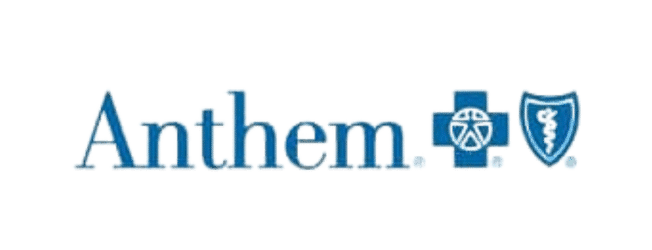Introduction
Methamphetamine, commonly known as meth, is a powerful and highly addictive stimulant. Detoxing from meth can be a challenging process due to intense cravings and physical withdrawal symptoms, but it is a crucial step towards recovery. This comprehensive guide provides practical ways to safely detox from meth, including strategies for managing withdrawal symptoms, ensuring safety, and accessing support. By following these tips, individuals can successfully navigate the detox process and embark on a path to long-term recovery.
Understanding Meth Detox
What is Meth Detox?
Meth detox is the process of eliminating methamphetamine from the body. This detox process can cause intense cravings and withdrawal symptoms as the body adjusts to the absence of the drug. The severity and duration of symptoms can vary based on the form of methamphetamine used and the duration of use. The withdrawal process can involve psychological symptoms such as severe depression, anxiety, and mood swings, along with physical symptoms like muscle aches, excessive sweating, and rapid weight loss.
Common Symptoms of Meth Withdrawal
Withdrawal symptoms can vary in intensity and duration depending on the individual and their level of meth use. Common meth withdrawal symptoms include:
- Fatigue
- Severe depression
- Increased appetite
- Anxiety and agitation
- Insomnia
- Paranoia
- Cravings for meth
- Muscle pain and body aches
Essential Tips for a Safe and Effective Meth Detox
Seek Professional Help
Detoxing from meth should be done under medical supervision to ensure safety and manage withdrawal symptoms effectively.
- Consult a healthcare provider: Discuss your intention to detox with a medical professional to develop a safe and effective detox plan.
- Medical detox programs: Consider enrolling in a medical detox program or detox center where healthcare professionals can monitor your progress and provide necessary support.
- Gradual detox: In some cases, a gradual reduction in meth use may be recommended to minimize withdrawal symptoms.
Build a Strong Support System
Having a robust support system is essential for a successful detox.
- Family and friends: Inform your family and friends about your detox plan and seek their support and encouragement.
- Support groups: Join support groups for individuals going through meth detox. Sharing experiences and advice can be incredibly beneficial.
- Therapists and counselors: Work with a therapist or counselor to address the psychological aspects of addiction and build coping strategies.
Stay Hydrated and Nourished
Proper hydration and nutrition are crucial during the detox process.
- Drink plenty of water: Stay hydrated to help flush toxins from your body and maintain overall health.
- Healthy diet: Eat a balanced diet rich in vitamins and minerals to support your body’s recovery.
- Avoid caffeine and sugar: Minimize the intake of caffeine and sugar as they can exacerbate anxiety and agitation.
Manage Withdrawal Symptoms
Managing withdrawal symptoms is essential for a successful detox.
- Stay active: Regular exercise can help reduce stress, improve mood, and combat fatigue.
- Relaxation techniques: Practice techniques such as deep breathing, meditation, and yoga to manage anxiety and stress.
- Adequate sleep: Ensure you get enough rest and maintain a regular sleep schedule to support your body’s recovery.
Avoid Triggers and High-Risk Situations
Identify and avoid triggers that may lead to relapse during your detox.
- Stressful situations: Avoid high-stress environments and situations that may trigger anxiety or cravings for meth.
- Places and people: Steer clear of places and individuals associated with meth use to prevent relapse.
- Develop a plan: Create a plan for how to handle cravings and high-risk situations.
Use Medications if Necessary
In some cases, medications may be prescribed to help manage withdrawal symptoms and support detox.
- Antidepressants: May be prescribed to manage severe depression and anxiety during detox.
- Sleep aids: Non-addictive sleep aids can help with insomnia.
- Antipsychotics: These may be used to manage severe paranoia and psychotic symptoms.
Focus on Mental Health
Addressing the psychological aspects of addiction is crucial for long-term recovery.
- Therapy: Engage in behavioral therapy or cognitive-behavioral therapy to explore the underlying causes of your addiction and develop coping strategies.
- Mindfulness practices: Incorporate mindfulness into your daily routine to improve mental clarity and emotional regulation.
- Stress management: Learn and apply stress management techniques to cope with daily challenges without relying on meth.
Plan for Long-Term Recovery
Successful detox is the first step in the recovery process. Planning for long-term recovery is essential to prevent relapse.
- Continued therapy: Continue therapy sessions to address ongoing issues and maintain progress.
- Lifestyle changes: Implement healthy lifestyle changes to support your overall well-being.
- Relapse prevention plan: Develop a relapse prevention plan that includes coping strategies, support networks, and emergency contacts.
FAQs
Q: How long does meth detox take?
A: The duration of meth detox varies depending on the individual, their level of meth use, and their overall health. Detox can take several weeks to several months.
Q: Can I detox from meth on my own?
A: Detoxing from meth should not be done alone due to the risk of severe withdrawal symptoms. It is essential to seek medical supervision and support.
Q: What are the risks of meth detox?
A: Risks of meth detox include severe withdrawal symptoms such as depression, anxiety, fatigue, and psychosis. Medical supervision can help manage these risks.
Q: Will I need to take other medications during detox?
A: In some cases, healthcare providers may prescribe medications to help manage withdrawal symptoms and support the detox process. These medications are typically non-addictive and used for a short period.
Q: What should I do if I experience severe withdrawal symptoms?
A: If you experience severe withdrawal symptoms, seek medical help immediately. Severe symptoms require professional intervention to ensure your safety and well-being.
Conclusion
Detoxing from meth is a challenging but achievable process with the right strategies and support. By seeking professional help, building a solid support system, staying hydrated and nourished, managing withdrawal symptoms, and planning for long-term recovery, individuals can successfully detox and begin their journey to recovery. Remember that detox is just the first step, and preparing for long-term recovery is essential to maintain sobriety and improve your overall well-being. If you or someone you know is considering meth detox, consult with a healthcare provider to develop a safe and effective plan.
Start Your Journey to Recovery Today
If you or a loved one is struggling with methamphetamine dependence or meth addiction, don’t hesitate to seek professional help. The proper support and strategies can make all the difference in achieving a successful detox and long-term recovery.













